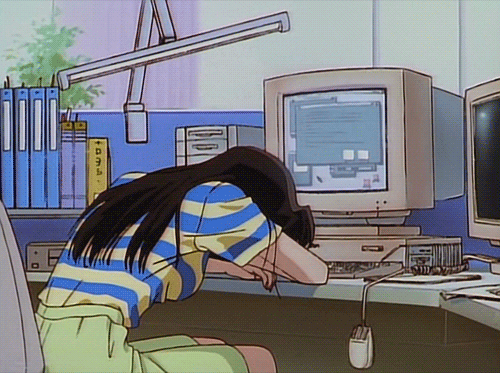Cyberbullying is unfortunately a very real thing that is becoming more and more of an issue today, what with the internet being so prominent in the lives of pretty much everybody – especially students.
In case you don’t know, ‘keyboard gangster’ refers to somebody who is given ultimate confidence by the knowledge that because they’re behind a computer screen, i.e. anonymous, absolved of responsibility for their actions, so much so that they think it’s wise to be mean to people just because they can. You may know a keyboard gangster; you may be a keyboard gangster. Either way, this post aims to highlight the seriousness of cyberbullying, and how it can affect you and those around you.
For those of you who have never heard of Gossip Girl, I’ll give you a quick low-down. It was an American television series that focused on the less-than-private lives of several privileged Upper East Siders of Manhattan, who fell victim to a secret famous online social-exploiter-slash-life-ruiner known as Gossip Girl. Gossip Girl dedicated years of his/her (its?!) life to exposing the deepest, darkest secrets of the elite group purely for the entertainment of their peers. Friendships and relationships were broken and rebuilt, broken and rebuilt, broken and rebuilt over and over and over again, and why? Just for the LOLs.
But the sad truth is that for the people involved, this elaborate act of online bullying isn’t fun and games. Gossip Girl was a television show with actors, i.e. not real, but online bullying most definitely is. We’ve all been on (or at least seen our friends posting links to) various websites that show embarrassing photographs or videos of people that have gone viral, but how many of us have actually stopped to think about the person in the photograph or video? Of course, some people will be perfectly okay with laughing at themselves – sometimes it is just a joke, and sometimes it’s done with the sheer purpose of entertaining – but sometimes it’s not. Sometimes, photographs or videos are leaked without the consent of the person shown, and it can have ghastly results.
As the saying goes: it’s easy to be mean. But when you’re sitting at a computer screen with only your keyboard and your vocabulary range depicting your entire personality, it’s even easier; if you don’t want your face to be associated with your words, it simply won’t be. The keyboard and the screen give us the power to create any online identity we like, and we tend to forget how powerful such a tool is. Some of us use the internet to boost our confidence, posting photographs of ourselves that are taken at the best possible angle to portray to the world that this is how we look twenty-four hours a day, seven days a week; some of us use the internet to make ourselves seem confident in other ways, i.e. our personality. Perhaps you’re a quiet soul who hates the idea of face-to-face conflict, but mull things over in your head while you wish you could say them aloud. This is where the internet comes in: the tool for taking your frustrations out on the world anonymously. It’s as simple as that. But in taking out our frustrations for the world to see – no matter how anonymous you think you are and no matter how cryptic you think you’re being – sometimes it’s possible to forget how, exactly, you’re affecting other people.
The thing about anonymity (i.e. not mentioning your own name or the name of the person you’re talking about) is that some of us believe it actually keeps what we’re saying anonymous. But when we say something like: “that guy who wears the [enter specific clothing item here] who keeps [enter supposedly offensive action here], can you please stop doing it in public, because it makes you look like a total tool…”, that person knows who you’re talking about. He knows. And because you’ve mentioned that one specific clothing item he wears, perhaps his large group of friends now knows too. Oh, and the hundreds (or thousands) of people who have seen your post. But even if he is the only person who knows, that still matters. How has it made him feel in himself? How does he feel now, walking around and feeling as though he has eyes resting on him around every corner? What is he thinking about when he’s in the privacy of his own space? Because even though he’s away from the eyes, people are still reading what one person has written about him. In other words, he might be away from the eyes, but the eyes are not away from him. Whether that’s the case or not, it doesn’t really matter. People might forget about what was said about him five minutes later, but will he really feel like that? Will he really be able to just brush it off? Perhaps. But perhaps not. The next thing you know, he’s avoiding leaving his house where possible, just in case he sees somebody typing on a computer and immediately assumes they’re writing about him, or he sees a group of people laughing and jumps to the conclusion that their amusement is at his expense. He’s staying away from the internet because he’s terrified that people are still talking about him, or he’s received a message from somebody he knows, saying that they “saw that post and just knew it was about him”. He’s quieter. He’s lonelier. He’s more self-conscious, where before he was one of the loudest, most outspoken individuals known to man. He’s unsure of himself. He cares what even strangers think, when before he was confident and blissfully ignorant. In short, he is not himself anymore.
That’s a hypothetic scenario. But this guy or girl exists, and so does the online post no matter what its form. Sometimes it doesn’t get as bad as that, but sometimes it gets worse. That’s what we need to remember. We need to place ourselves in the situation of the person mentioned and ponder how it would affect us, and this is not just mentally; it might affect us physically. Maybe we’ll start dressing differently, covering up our faces, working out at the gym frantically as we try to shift the extra weight somebody we don’t know has pointed out. Or maybe we’ll apply for jobs later in life, and the employer will search our names, see that unfortunate photograph somebody has posted of us and decide that we’re not great material for the job role. Maybe that was our dream job, and the opportunity has been missed because of some unfortunate little incident that happened a long, long time ago. It can happen, has happened and will continue to happen if we’re not careful.
A good idea, in this case, is to imagine words as energy. Energy is not destroyed; it is transformed. The internet is an amazing thing on which pretty much anything can exist, from photographs to news to Facebook profiles and emails. The internet connects the entire world at any time of the day, every day, every week, every month, and every single year. The phrase “news travels fast” has never been more appropriate.
So imagine typing a damning Facebook status, tweet or blog post about somebody, and then pressing ‘post’. This is your energy. You leave it for five minutes and then decide you feel guilty, so you delete it. But somebody else who thought it was hilarious has already shared the energy, and now it’s on their page. Somebody else on that person’s profile ‘likes’ or ‘RTs’ the energy, and that energy shows up on all of their friends’ profiles. Just because you deleted it, it doesn’t matter. Energy cannot be destroyed. You’ve caused a chain reaction. That energy is now travelling all over the globe, and it will keep travelling long after you’ve forgotten about it. It makes its way into speech, maybe. If it does, the energy has been transformed, and it will just keep transforming.
To reiterate: energy cannot be destroyed. And neither can words. Especially when they’re on the internet.
You may be the offender; you may be the victim. Either way, cyber-personalities are just as real as real personalities. It’s important to remember that even if you yourself are anonymous, your words are not. Think about what you’re writing and think about what you’re showing to people, because nothing on the internet ever disappears.
If you have questions, comments, or even want to tell us about your own online experiences, let us know or tweet us @covcampus!
– Karis






